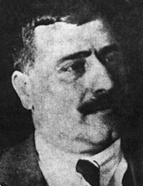

RM noted that "History is the reflection of the past, the mirror of the present, the guide to the future." This sentiment is reflected in his História de Portugal, which he dedicated to "the scholars of Portugal, to the the humble at home and abroad, to the exiled labourers, outcasts from the classroom, entering the school of the struggle for bread." His concern for the humble, who needed to acquire knowledge and education, is evident throughout his work. In História de Portugal , he unleashed his conception of history as a narrative of exciting episodes: "It will not be a eulogy to all the deeds of our ancestors, but rather a reflection on the past — at times sentimental, then painful, then triumphant, sometimes tormented, strong in moments, and at others woven with sadness — depending on the victories and catastrophes." In this blessed land, the author felt like "a believer in the future, under the protection of the old days" (~História de Portugal, 1929, p. 7). This would attract the attention of the curious. Rocha Martins’ História de Portugal sponsored by the newspaper Diário de Notícias was widely noted for its extensive illustrations, though the quality of these was not always the highest. RM clearly aimed to present environments, monuments, and key personalities in a way that helped readers better understand the past, while maintaining a fairly impartial perspective. His monarchist leanings do not come through in the sections he dedicates to the Republic in História de Portugal. Here, he limits himself to presenting the facts he considers relevant, without embellishing them with adjectives or inserting evaluative commentary. As for the Military Dictatorship that followed the 1926 coup, he merely labels it as "National Ephemeris," with the second edition covering the years 1919 to 1930. These are topics that he may have intended to explore further, but they never materialised. In contrast, O governo provisório da República Portuguesa 1910-1911 [The Provisional Government of the Portuguese Republic 1910-1911], which he refers to as Crónica e Memórias Políticas [Chronicle and Political Memoirs], is a much more thorough work. This continues from where João Franco e o seu tempo [João Franco and His Time], D. Carlos [King Carlos], D. Manuel II [King Manuel II], Pimenta de Castro, Memórias sobre Sidónio Pais [Memoirs on Sidónio Pais], Monarquia do Norte [Northern Monarchy] and A Republica: memorias para a historia do novo regimen [The Republic: memoirs for the history of the new regime] left off. However, he refrained from writing a book on the 28th of May and the Military Dictatorship, and there is no indication that he ever sought to chronicle the Estado Novo.
This work is financed by national funds through FCT - Foundation for Science and Technology, I.P, in the scope of the projects UIDB/04311/2020 and UIDP/04311/2020.
